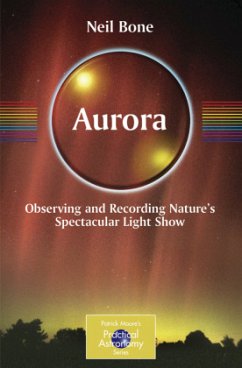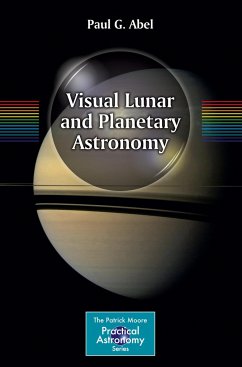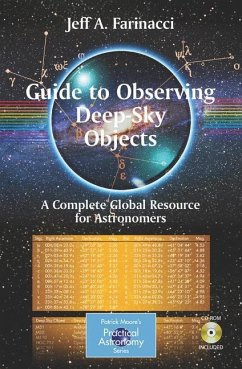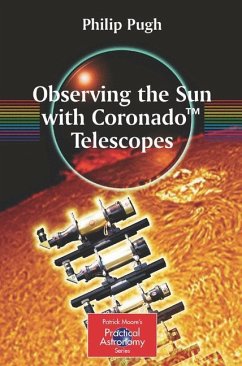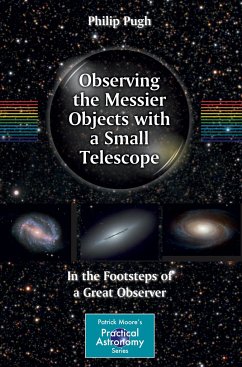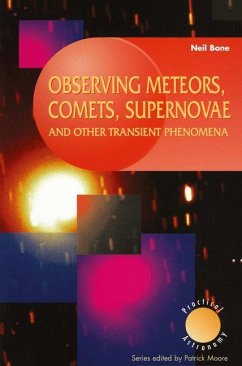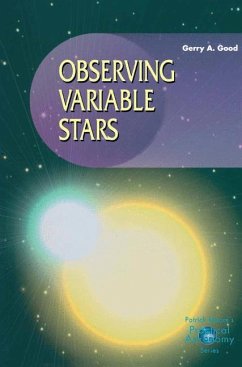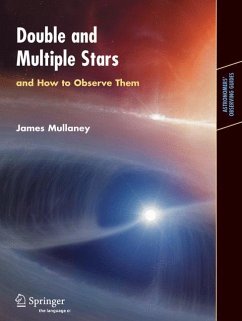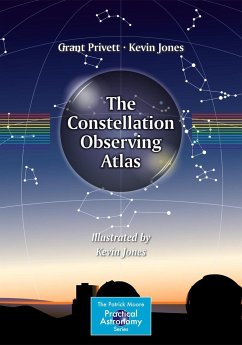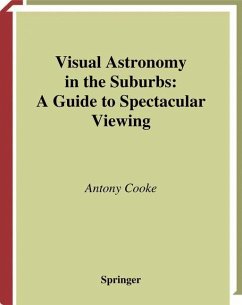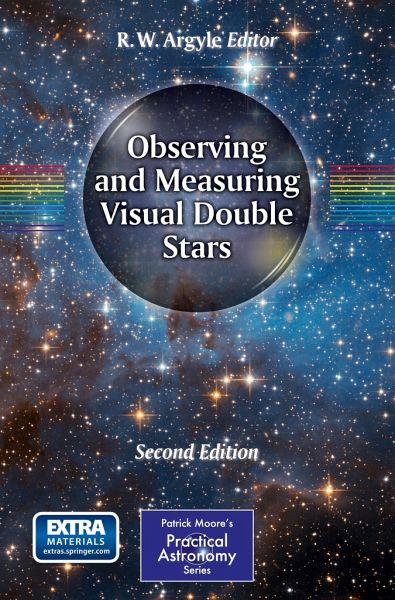
Observing and Measuring Visual Double Stars

PAYBACK Punkte
20 °P sammeln!
The second edition of Observing and Measuring Visual Double Stars (2004) is the definitive book for those who are serious about this fascinating aspect of astronomy. It deals with equipment (you can start modestly with commercial or even home-made instruments), observing methods using binoculars upwards to advanced instrumentation and techniques, including speckle interferometry. The astronomy of double stars, including orbital calculation, is given its own section.This second edition of this popular book contains a significant amount of completely new material, inspired by the work done by ob...
The second edition of Observing and Measuring Visual Double Stars (2004) is the definitive book for those who are serious about this fascinating aspect of astronomy. It deals with equipment (you can start modestly with commercial or even home-made instruments), observing methods using binoculars upwards to advanced instrumentation and techniques, including speckle interferometry. The astronomy of double stars, including orbital calculation, is given its own section.
This second edition of this popular book contains a significant amount of completely new material, inspired by the work done by observers - particularly in the USA - since the first edition was published. This includes the use of the Internet to carry out astrometry (precise astronomical measurement) using existing survey plates and films. The new edition contains an excellent guide to sketching double stars, a topic not previously covered. In addition, there is information about how to image doublestars of unequal brightness, always a difficult matter but now somewhat easier because of advances in hardware and image-processing software. Nearly all of the chapters and tables have been updated.
The CD-ROM that accompanied the first edition of Observing and Measuring Visual Double Stars is replaced by access to the Springer Extras web site. The extra information includes the complete Washington Double Star and Tycho-2 Catalogs. There is an extensive database of astrometric, double-and multiple-star formation, including positions, orbits, separations, and magnitudes, and a software suite that implements many of the calculations and equations featured in the book.
This second edition of this popular book contains a significant amount of completely new material, inspired by the work done by observers - particularly in the USA - since the first edition was published. This includes the use of the Internet to carry out astrometry (precise astronomical measurement) using existing survey plates and films. The new edition contains an excellent guide to sketching double stars, a topic not previously covered. In addition, there is information about how to image doublestars of unequal brightness, always a difficult matter but now somewhat easier because of advances in hardware and image-processing software. Nearly all of the chapters and tables have been updated.
The CD-ROM that accompanied the first edition of Observing and Measuring Visual Double Stars is replaced by access to the Springer Extras web site. The extra information includes the complete Washington Double Star and Tycho-2 Catalogs. There is an extensive database of astrometric, double-and multiple-star formation, including positions, orbits, separations, and magnitudes, and a software suite that implements many of the calculations and equations featured in the book.




